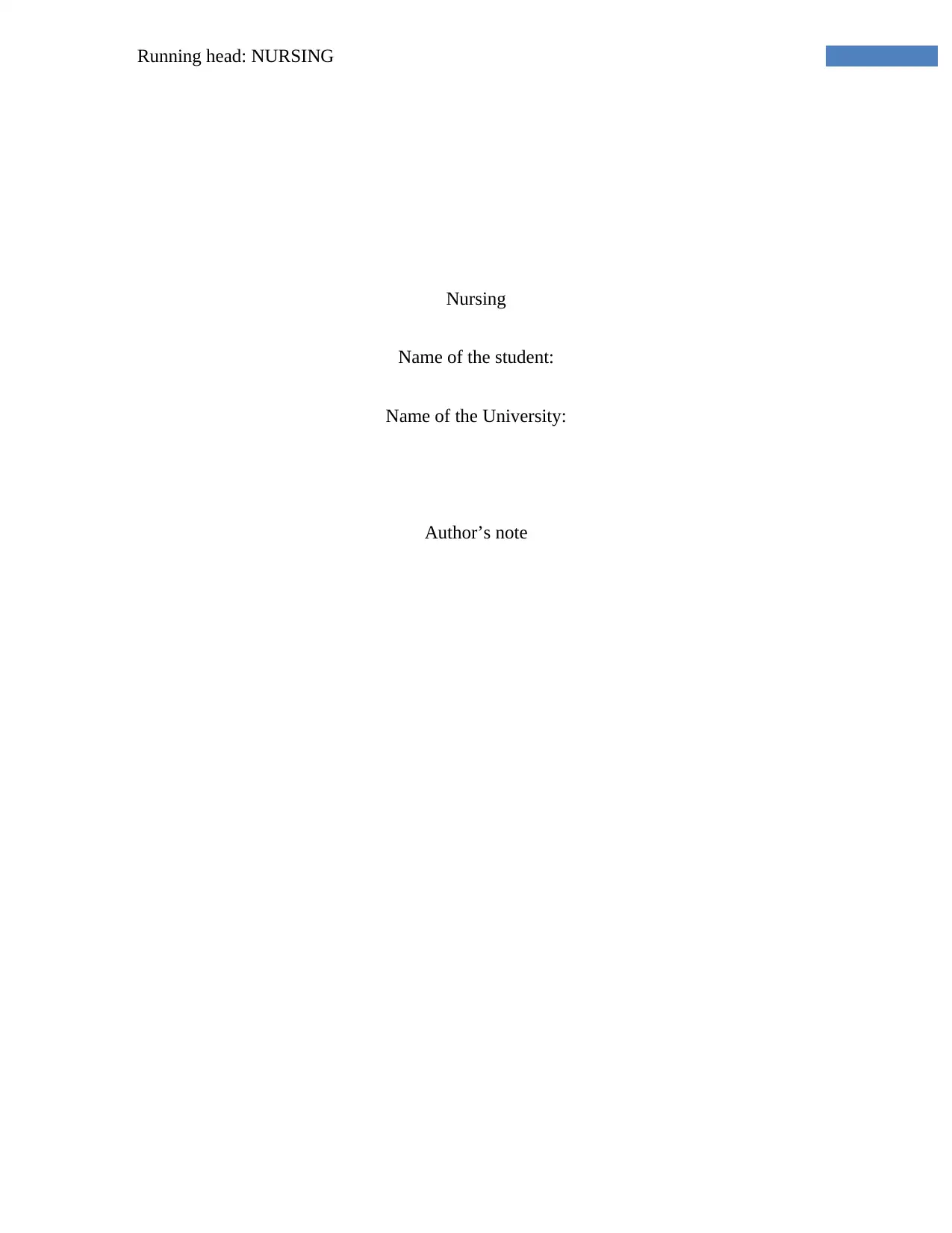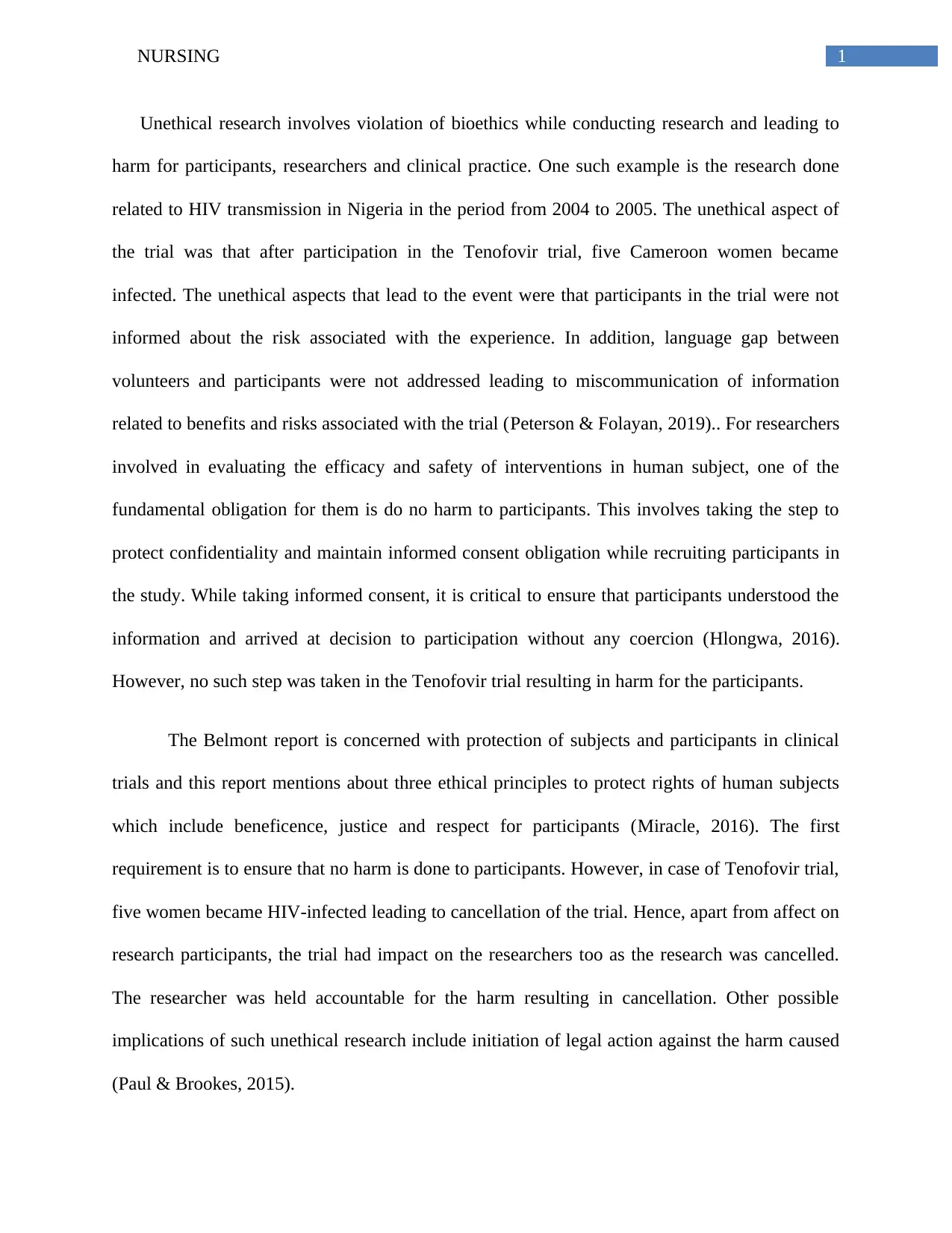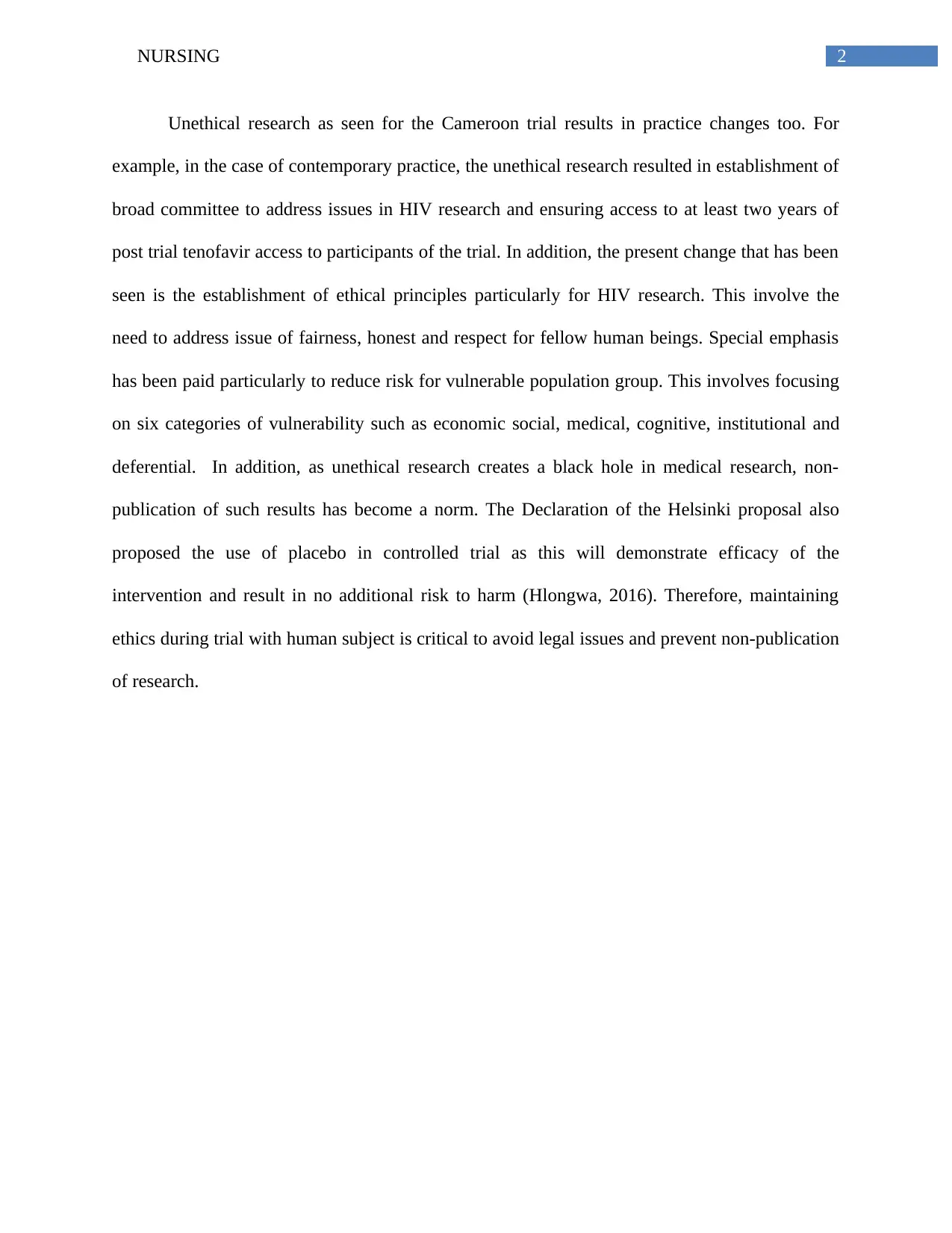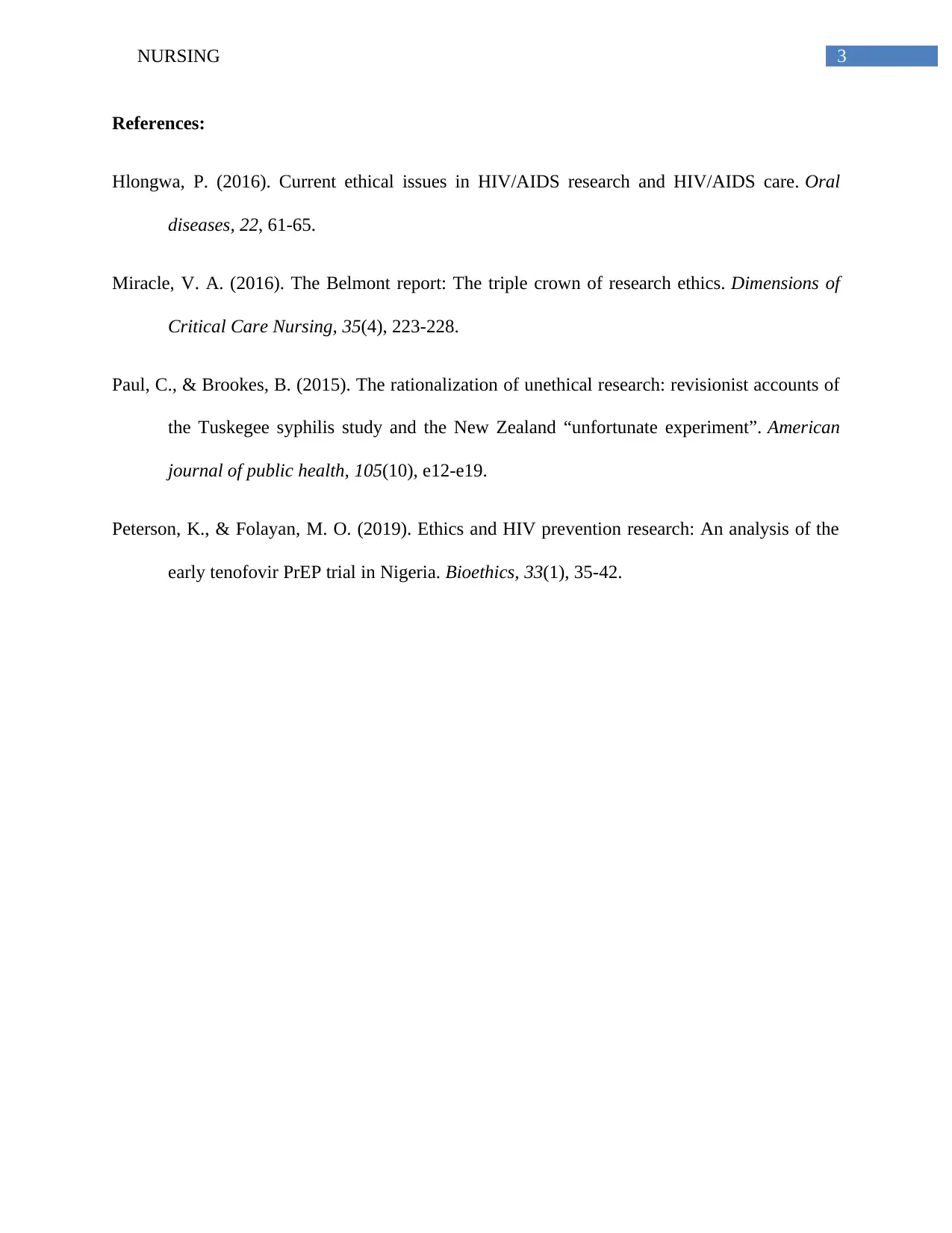Nursing Research and Ethics: A Study of the Tenofovir Trial Case
VerifiedAdded on 2022/10/18
|4
|735
|12
Essay
AI Summary
This essay examines unethical research practices in nursing, focusing on the Tenofovir trial in Nigeria (2004-2005) where women became HIV-infected after participating in the trial. The unethical aspects included a lack of informed consent, failure to address language barriers, and inadequate communication of risks. The essay references the Belmont Report's principles of beneficence, justice, and respect, highlighting how the trial violated these principles. The implications of such unethical research include trial cancellation, researcher accountability, potential legal action, and changes in practice, such as the establishment of committees to address issues in HIV research and ethical principles focused on fairness, honesty, and respect, particularly for vulnerable populations. The essay concludes by emphasizing the importance of maintaining ethics in human subject trials to avoid legal issues and research suppression, referencing the Declaration of Helsinki's proposal for placebo use in controlled trials.
1 out of 4











![[object Object]](/_next/static/media/star-bottom.7253800d.svg)